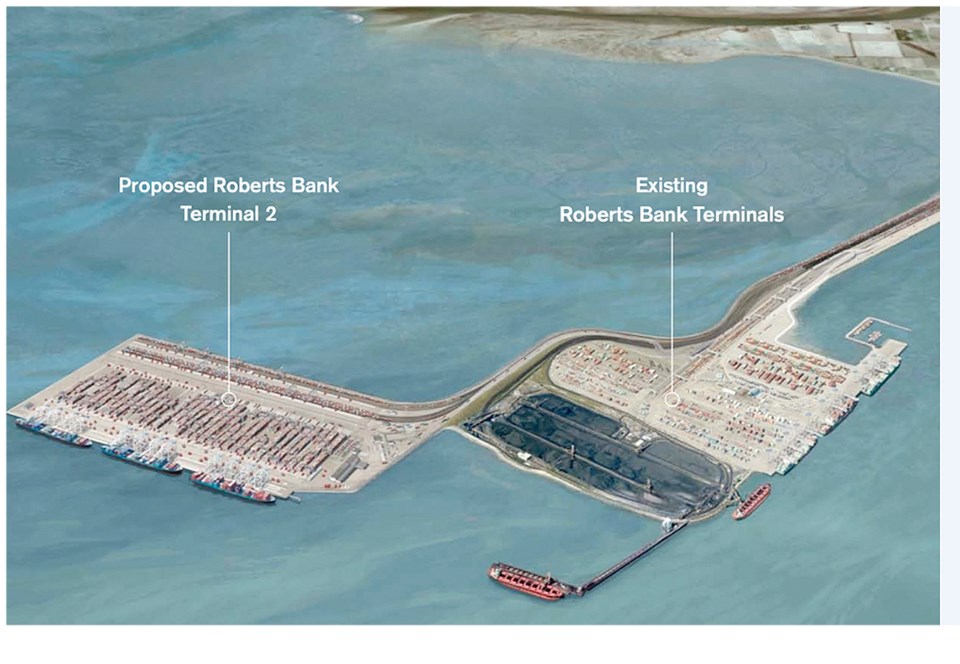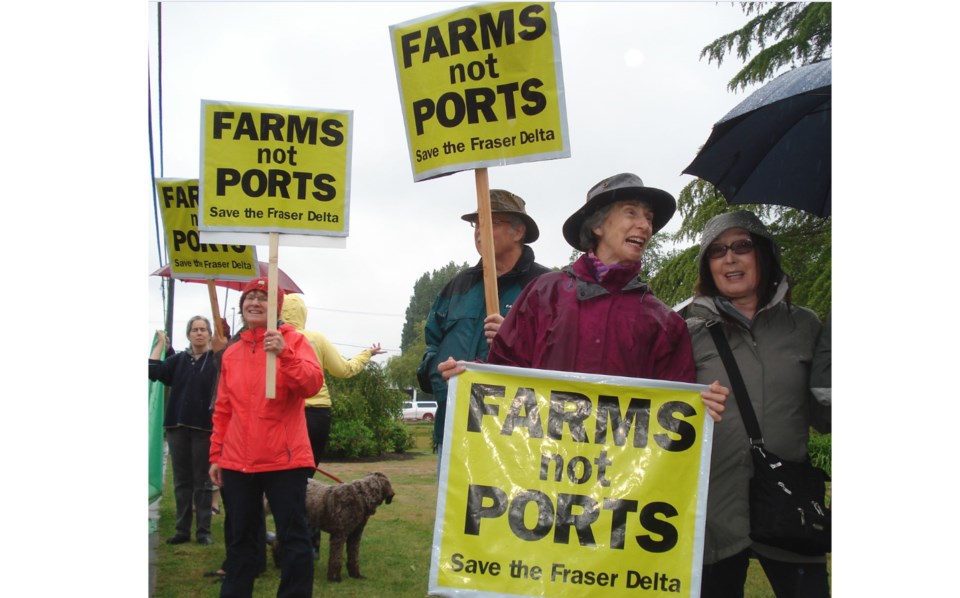The Delta group which has been fighting for years against port expansion at Roberts Bank is optimistic a proposed mega project will be rejected.
Against Port Expansion is hopeful the findings of a federal independent review panel on the Port of Vancouver’s Terminal 2 application will lead the government to rule against the project, which would result in a new three-berth container terminal on a man-made island adjacent to the existing Deltaport facility.
“The Panel has come out quite strongly in a number of instances. Throughout the report they identify areas where RBT2 will cause significant adverse environmental effects with no assurance that these can be mitigated,” APE’s Roger Emsley told the Optimist.
“These include not only wetlands and wildlife impacts but also human health and negative effects to residents. There is ample evidence and justification for the federal government to rule against RBT2. This is the final nail in the coffin.”
The panel’s report didn’t paint a rosy picture when it comes to the adverse residual and cumulative effects that would result from the project but, while also listing a series of recommendations, didn’t go so far as to say the project should not proceed.
Among the findings, the report notes there would be significant adverse and cumulative effects on wetlands and wetland functions at Roberts Bank.
In a news release APE also points out, “On biofilm, the Panel destroys several of the Port’s arguments. The Port stated on a number of occasions that biofilm can be created. The Panel said that is unproven and as a mitigation measure for biofilm it cannot be considered feasible.”

Other groups including Birds Canada are also saying T2 as currently planned will not be able avoid significant impacts on Western Sandpiper, Barn Owls and the millions of other birds using the Fraser River Delta.
“Birds Canada is of the view that the uncertainty surrounding impacts on Western Sandpiper is a perfect example of how little we know about the linkages needed to maintain the function of the Fraser River ecosystem,” Birds Canada states.
Emsley noted while the panel report is wishy washy in a number of areas, it was also equally blunt in others, adding it details a number of areas where RBT2 would result in human health impacts.
Listing other factors against the project, Emsley went on to say, “Given the current economic conditions, where the federal government is already shoveling money out the door to support the Canadian economy, plus the fact it is committed to build a $12 billion dollar pipeline that it now owns, it makes no economic sense to spend another $3.5 - 4 billion on a new container terminal that is not needed.”
According to the Port of Vancouver, the project has already made a significant contribution to scientific knowledge of the Roberts Bank ecosystem and many species of interest.
“Given our extensive work in the area of biofilm, the port authority is developing a manual in collaboration with global leaders in biofilm science that will identify and document best practices for developing biofilm habitat in the Fraser River estuary. The manual will serve as a guide for the port authority when we build mudflat habitat to offset project effects, as well as for other marine developers and offsetting practitioners active in the Fraser River estuary,” the port states.
If the project is approved, the port authority says it will develop an offsetting plan that will not only maintain and enhance natural productivity of the Roberts Bank ecosystem, but will also have the potential to make a meaningful contribution to the future health and recovery of west coast species including Chinook salmon and the endangered southern resident killer whale population.



